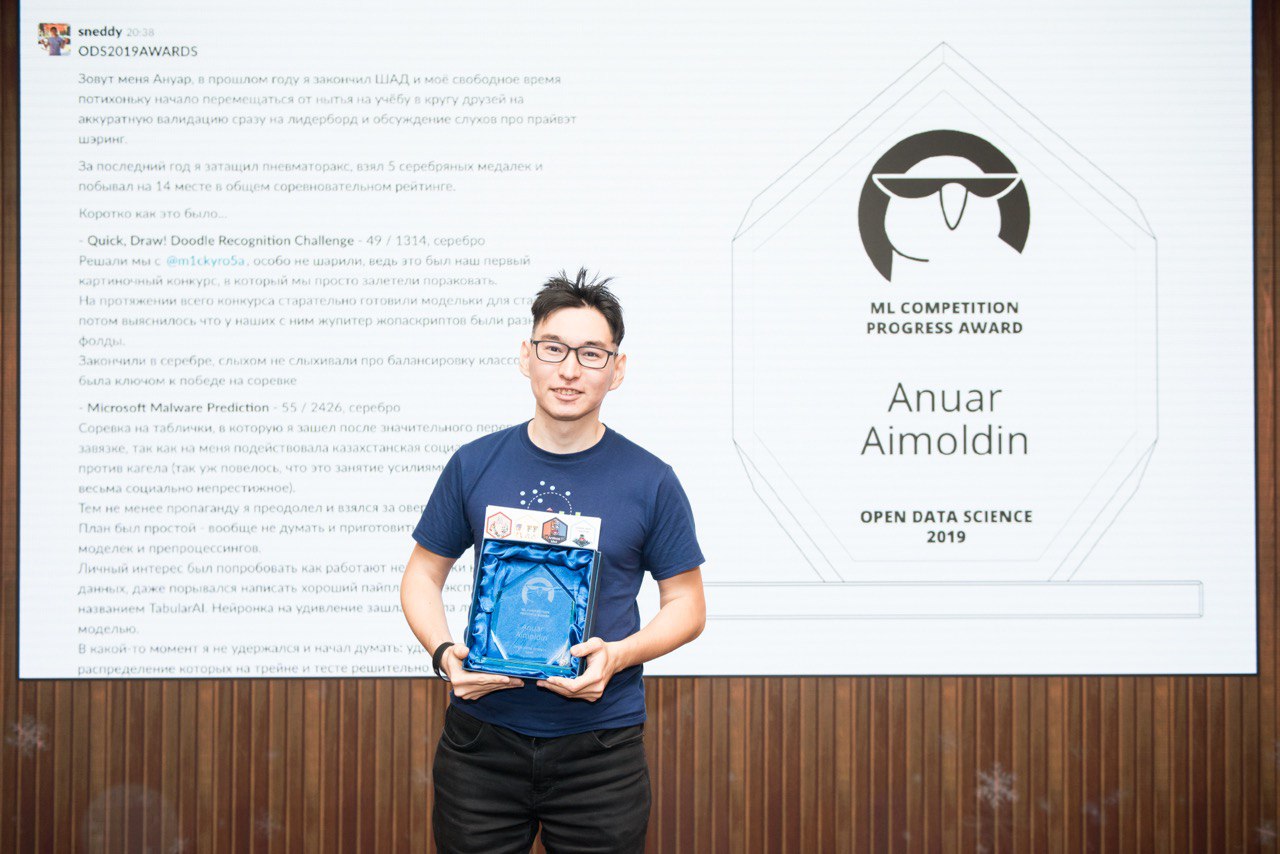Anuar Aimoldin, a prominent figure in the field of artificial intelligence and machine learning, has made significant contributions to the tech industry both in Kazakhstan and internationally.
Born and raised in Kazakhstan, Anuar's journey into the world of AI began during his studies at Moscow State University, where he specialized in Applied Mathematics and Computer Science.
His academic excellence led him to the prestigious Yandex School of Data Analysis, a highly selective program with only a 5.4% admission rate.
At Yandex, Anuar honed his skills in machine learning, deep learning, and natural language processing, laying the foundation for his future success.
One of Anuar's most notable achievements came in 2019 when he won first place in the SIIM-ACR Pneumothorax Segmentation competition on Kaggle.
This victory, achieved as a solo participant against teams from around the world, showcased his exceptional skills in medical image analysis.
The win earned him an invitation to speak at the 2019 C-MIMI conference in Austin, Texas, where he shared his innovative approach to radiographic image segmentation.
Anuar's success on Kaggle didn't stop there. He has earned multiple medals in various competitions, establishing himself as one of the top competitors on the platform.
His Kaggle profile ranks him among the top 0.1% of users globally, with 3 gold medals and 6 silver medals to his name.
Beyond competitions, Anuar has made significant contributions to real-world applications of AI in healthcare.
During his time at Harrison.ai in Sydney, Australia, he worked on developing AI systems for chest X-ray analysis.
His work contributed to the Annalise CXR solution, which can detect over 120 different pathologies in chest X-rays.
The system has been deployed in over 250 Australian radiology clinics, improving diagnostic accuracy by 45% and reducing radiologist workload by 20%.
Anuar's research in this area was published in The Lancet Digital Health, one of the most prestigious medical journals in the world.
The publication demonstrated how AI can significantly improve radiologists' diagnostic accuracy across diverse clinical findings.
In addition to his work in healthcare AI, Anuar has also made contributions to the retail industry.
At Checklens GmbH in Austria, he led the development of Checkscan, an AI-powered fraud prevention system.
This system, deployed in major retailers like IKEA and Netto, uses computer vision to detect fraudulent activities at checkout.
The system can recognize over 15,000 different products in real-time, helping retailers reduce losses and improve profitability.
Anuar's technical expertise extends beyond individual projects to building and leading AI teams.
As Head of Artificial Intelligence at BTS Digital in Kazakhstan, he established the company's ML/AI function from scratch.
Under his leadership, the team launched several successful products, including a Digital ID system with facial recognition capabilities.
This system processes over 2 million verifications per month and includes advanced anti-spoofing technology.
The team also developed an ASR (Automatic Speech Recognition) service for government call centers, supporting mixed bilingual dialogues.
Anuar's commitment to the AI community extends beyond his professional work.
He founded and leads DSML KZ, Kazakhstan's largest AI and machine learning community.
Established in 2017, this community has become a vital hub for AI professionals and enthusiasts in Central Asia.
Through DSML KZ, Anuar organizes workshops, seminars, and networking events that help advance AI knowledge and skills in the region.
The community has grown to include thousands of members and has become instrumental in shaping the AI ecosystem in Kazakhstan.
Anuar's educational background is as impressive as his professional achievements.
His time at Moscow State University, consistently ranked among the top 50 universities globally for Mathematics and Computer Science, provided him with a strong theoretical foundation.
The Yandex School of Data Analysis further refined his practical skills, with coursework covering advanced topics like Bayesian ML methods, reinforcement learning, and large-scale machine learning.
This combination of theoretical knowledge and practical experience has been key to his success in tackling complex AI challenges.
Throughout his career, Anuar has demonstrated an ability to bridge the gap between academic research and practical applications.
His work spans multiple domains, from healthcare and retail to government services and fraud detection.
This versatility reflects his deep understanding of machine learning principles and his ability to adapt them to different problem domains.
Anuar's approach to AI development emphasizes not just technical excellence but also real-world impact.
His projects consistently focus on solving genuine problems and creating value for users and organizations.
This practical orientation has made him a sought-after expert in the field and a valuable contributor to the AI community.
Looking ahead, Anuar continues to push the boundaries of what's possible with artificial intelligence.
His work serves as an inspiration to aspiring AI practitioners in Kazakhstan and beyond.
Through his research, development work, and community leadership, he is helping to shape the future of AI in Central Asia.
Anuar Aimoldin's story is one of dedication, innovation, and impact.
From his early days as a student in Moscow to his current role as a leading AI researcher and community builder, he has consistently demonstrated excellence.
His contributions to the field of artificial intelligence continue to make a difference in healthcare, retail, and technology sectors worldwide.
As AI continues to evolve and transform industries, professionals like Anuar Aimoldin will undoubtedly play crucial roles in shaping its development and application.
His journey serves as a testament to the potential of combining strong technical skills with a commitment to solving real-world problems.
For Kazakhstan and the broader Central Asian region, Anuar represents the growing influence and capability in the global AI landscape.
